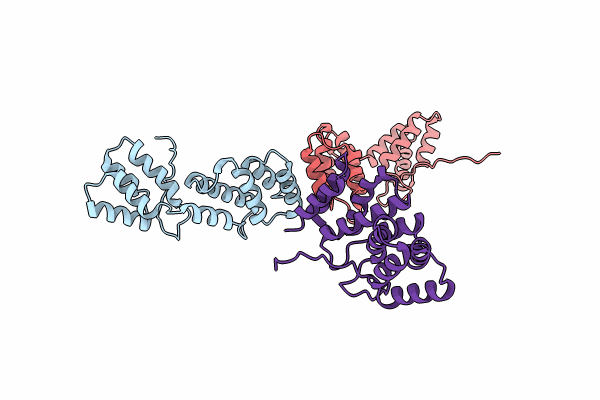
Deposition Date
2023-12-03
Release Date
2024-02-14
Last Version Date
2024-02-28
Entry Detail
PDB ID:
8RB5
Keywords:
Title:
Structure of the three-fold capsomer of the PNMA2 capsid
Biological Source:
Source Organism(s):
Mus musculus (Taxon ID: 10090)
Expression System(s):
Method Details:
Experimental Method:
Resolution:
3.30 Å
Aggregation State:
PARTICLE
Reconstruction Method:
SINGLE PARTICLE


